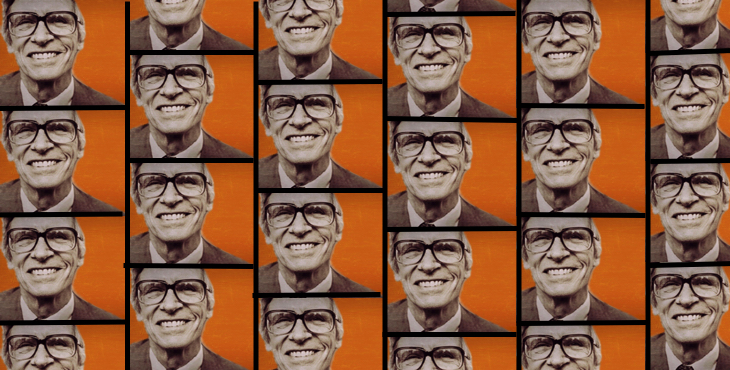The Origin of Belief
Joshua DiPaolo and Robert Simpson on the origins of our beliefs and the problem of indoctrination
People sometimes criticize others’ beliefs by insisting that they would have believed otherwise if they’d had a different upbringing. They say things like, ‘you only believe in God because you were raised in a Christian household’, or ‘you wouldn’t support the Labour Party if you hadn’t been raised by trade unionists’. These criticisms are sometimes called ‘etiological challenges’. Everyone’s beliefs have a particular etiology, that is, a particular causal origin. You had some experiences, received educational instruction and testimony from others, spent some time—or maybe not much—thinking about the wider issues, and ultimately arrived at your beliefs. An etiological challenge to your beliefs suggests that certain facts about the causal origins of those beliefs make them problematic.
Etiological challenges can serve various purposes in culturally diverse societies. One thing they’re useful for is cultivating intellectual humility. The fervent young religious or political zealot is often inclined to think that those who reject his views are merely being pig-headed. John Stuart Mill complained of this character: ‘it never troubles him that mere accident has decided’ which belief system is his, ‘and that the same causes which make him a Churchman in London, would have made him a Buddhist or a Confucian in Pekin’. An etiological challenge may constitute an attempt to complicate matters in this person’s mind and to produce in him a certain anxiety, by reminding him that he would hold different views if he’d been raised in different conditions. Even if he continues thinking his reasons for believing are good ones, an etiological challenge tells the single-minded fanatic to be humble about judging others for the mistakes he thinks they’re making.
Intellectual humility is a widely shared ideal, so this is fine as far as it goes. Still, it seems like etiological challenges are meant to do more than just elicit humility or anxiety. These challenges often look like demands that others revise their beliefs. When someone says to a theist, ‘you only believe in God because you were raised in a Christian household’, this isn’t just a call for intellectual humility. It’s offered as a reason against maintaining belief in God.
The question, then, is whether considering facts about the causal origins of your belief ever does rationally require belief revision. The crux of the issue can’t just be the mere possibility that you may be mistaken in your beliefs. You don’t have to grapple with etiological challenges to recognize the fact that you’re rarely able to indemnify yourself against the possibility of error. So, if etiological challenges are just a way of reemphasizing that point, they don’t have any distinctive bearing on the rationality of belief.
It could be that etiological challenges are simply meant to remind you that some people who appear to be just as sincere, intelligent, and well informed as you end up with different beliefs thanks to their different upbringings. On this interpretation, an etiological challenge forces you to recognize the apparent reasonableness of other people’s contrary beliefs, which, in turn, rationally requires you to reduce confidence in your own beliefs. Indeed, this is what a number of philosophers writing about this issue concluded recently. But if that’s the right interpretation of things, then, again, etiological challenges end up being more or less redundant. Etiological challenges can give you an indirect reason to revise your beliefs, but only by drawing your attention to generic considerations that you could have and should have been factoring into your judgements all along.
On both of these interpretations of an etiological challenge’s rational force, etiology ultimately drops out of the picture. We favour a different analysis that makes etiology central. We think etiological challenges are linked to an issue in applied epistemology, namely, the problem of indoctrination. It’s difficult to say exactly what indoctrination is and what differentiates it from education as such. Rather than advancing a decisive definition, we propose a rough characterization of indoctrination. We think it’s clear that there are educational methods that aim at imparting something like absolute or inflexible commitment to a belief system. Under these kinds of methods, students are discouraged from entertaining reasons to doubt these commitments. They’re encouraged to prejudicially give high credibility to those who share these commitments, and low credibility to those who deny them. They’re led to associate rejection of these commitments with certain vices (for example, disloyalty) and negative affective states (for example, fear), and to associate acceptance of these commitments with corresponding virtues and positive feelings. Indoctrination needn’t be thought of as an all-or-nothing affair. Our view is that within an educational practice, the more prevalent methods like these are, the more fitting it is to see that practice as a system of indoctrination. Thus characterized, indoctrination naturally contrasts with good education. Where good education cultivates students’ capacities for rational thought, indoctrination tries to bypass those capacities or impair their development.
Our view is that, in many cases, when a person receives an etiological challenge, it’s being put to her that her beliefs are a product of indoctrination, and that she should, therefore, reduce confidence in them. Now, suppose for the sake of argument that the recipient of the challenge grants that she’s been indoctrinated. Why does this require her to change her mind? Generally speaking, it’s irrational to think that you’ve lucked into getting true beliefs via a method of belief-acquisition that usually delivers falsehoods. And everyone agrees that in our world—not as a matter of logical necessity, but as a matter of contingent fact—indoctrination usually delivers false beliefs. Even those who belong to religious or political groups that consciously employ indoctrination to transmit their views agree with this. When Catholics think children are being indoctrinated into Catholicism, they think these children are being indoctrinated into truth. But they think all the other indoctrinated children in the world—being indoctrinated into Islam, or atheism, and so on—are getting falsehoods. Whatever creed you subscribe to, you’ll think the vast majority of the beliefs that get instilled via indoctrination false. And so if you come to see your own beliefs as a product of indoctrination, this recognition generates a reason for you to reduce your confidence in their truth.
The question remains of how you might come to see your beliefs as a product of indoctrination in the wake of an etiological challenge. After all, the most effective indoctrination ‘covers its own tracks’. There is obviously no infallible method available for identifying indoctrination. But some methods are likely to be more effective than others. A simple armchair introspection on your mental life can only take you so far. A more comprehensive inquiry will, by contrast, be thoroughly social. Asking your friends, family members, and teachers what they recall about your educational history is a good start. Also, exposing yourself to unfamiliar communities, and thereby better appreciating the diversity of educational approaches, may help you form a clearer picture of the ways in which your education may have been narrow and idiosyncratic. In some cases, the necessary reflective distance might only be attainable once you’ve geographically exited the community that was responsible for your indoctrination. For instance, Allen Buchanan describes how moving away from his racist community of origin helped him reject the racist worldview that he was raised with:
I left this toxic social environment at the age of eighteen, and came to understand that the racist worldview that had been inculcated in me was built on a web of false beliefs about natural differences between blacks and whites. My first reaction was a bitter sense of betrayal: Those I had trusted and looked up to—my parents, aunts and uncles, pastor, teachers, and local government officials—had been sources of dangerous error, not truth.
Indoctrination is likely to be most effective at inculcating beliefs about religion and morality, since these sorts of beliefs are very sensitive to our social location, and less governed by the relatively impartial apparatus of perceptual experience. Yet they are also beliefs that are likely to be practically engaged. It’s no accident that etiological challenges typically target just these sorts of beliefs: we are most susceptible to manipulation with respect to these beliefs, and the results of error can be disastrous. And even the most cursory consideration of dark episodes in human history—concerning exploitation, bigotry, dehumanization, and so on—will make clear the profound consequences that can result from the enactment of beliefs that arise out of indoctrination. Etiological challenges should be understood as one of the social tools we use to try to help ourselves and others, as much as is possible, to recognize, cope with, and overcome that susceptibility.
The Source Code
This essay is based on the article ‘Indoctrination Anxiety and the Etiology of Belief’, by Joshua DiPaolo and Robert Simpson, published in Synthese. This paper stemmed from their involvement in a major research programme based at St. Louis University, on the Philosophy and Theology of Intellectual Humility.






